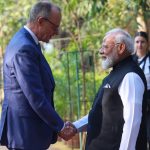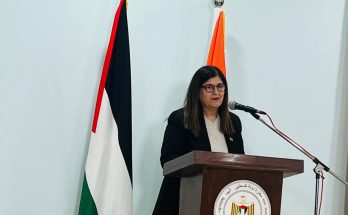Moving beyond business and cricket, Britain is poised to transform its relationship with India by forging new collaborative ventures in areas ranging from education and health to infrastructure and new-age security threats like cyber warfare.
Heading one of the largest overseas delegations, comprising top business honchos and thought leaders, British Prime Minister David Cameron is not just on a visit to India; he is on a mission to forge a special relationship and to package Britain as “the partner of choice” for what he sees as one of the world’s top economies by 2030.
The business of diplomacy is increasingly business, but Cameroon’s speech in Mumbai had the tinge of visionary future-seeking that India seems to inspire in a lot of visiting leaders these days. Underlining that India will be one of the leading nations in the 21st century and Britain wanted to be its partner of choice, the British leader declared that India’s rise is going to be “one of the big phenomena of the century.” “I want Britain and India to have a very special relationship. India’s rise is going to be one of the big phenomena of the century and it is incredibly impressive to see the vibrancy of your democracy, the great strength of the diversity of your country and the enormous power of your economy that is going to be one of the top three economies by 2030.” “That’s why I’m here. Britain wants to be your partner of choice,” he asserted. The British PM was speaking to employees of Hindustan Lever Limited in India’s commercial capital Mumbai Feb 18.
The India-UK partnership 2.0, if one can call it that, will seek to blend the burgeoning business ties with new areas that will include technology transfer and bolstering bases of knowledge society which will add to India’s competitive edge in the information-driven world fuelled by ideas and innovation. “We think there are huge ties obviously of history, language, culture and business, but we think we have only just started on this sort of partnership which we could build. Yes, it’s a partnership about business but it should go way beyond business.”
“I’ve brought some of the best businesses here to India, but we have also brought the Premier League, top universities and the British museum. We want to tie up in so many different ways,” said Cameron. “As far as I’m concerned, the sky is the limit,” he said while underscoring that this is a relationship about the future and not the past.
The British prime minister offered Britain’s expertise in setting up universities, and in doubling up India’s spend on health as a percentage of its GDP. In the infrastructure sector, Cameron offered 1 million pounds for sponsoring a study for building a corridor between Mumbai and Bangalore.
Imparting strategic depth to the relationship will be another major future priority. “We both face the challenge of terrorism and we want to meet the challenge of fighting terrorists together,” said Cameron. India will be looking to hear from the British leader his country’s initiatives in spurring the Taliban reconciliation which has caused some misgivings in New Delhi.
In a move that will be closely watched in China, an important outcome of Cameron’s visit is expected to be the launch of a taskforce on tackling the growing cyber attacks and countering cyber espionage. For reasons of sensitivity and prudence, China may not be mentioned explicitly during the discussions between Prime Minister Manmohan Singh and his British counterpart, but it’ anybody’s guess where these cyber attacks originate from.
Given Britain’s interest in attracting Chinese sovereign wealth funds, Cameron was predictably guarded when asked about the China angle to the India-UK cyber security cooperation. “The threat in terms of cybersecurity comes from all sorts of different places and organisations – a lot of it is criminal. What the British have done is [bring] together a strategy to help protect key industries, key infrastructure, key capabilities in terms of cybersecurity and that is work we want to share with others.” “Hacking bothers me wherever it comes from,” he added.
Clearly, recasting the so-called special relationship will require that promises are matched by results on the ground. Technology transfer is one area that has huge potential to transform people’s lives and India’s industrial landscape. Britain may have lost its status as the world’s preeminent power centre long time back, but it continues to be the repository of cutting-edge technologies and innovation that can greatly benefit India as it shepherds its own rise on the world stage.
“I know that Indian business and the Indian government want more investment, more technology transfer, including at the highest level. We are going to be rewriting our rules on high-level technology that we are prepared to share with our Indian partner,” said Cameron in Mumbai. If he can deliver on his promise, the process of recasting the India-UK relationship is bound to get momentum in days to come.
Author Profile

- Manish Chand is Founder and Editor-in-Chief of India Writes Network (www.indiawrites.org) and India and World, a pioneering magazine focused on international affairs. He is CEO, Centre for Global India Insights, an India-based think tank focused on global affairs.
Latest entries
 India and the WorldFebruary 7, 2026Modi hails interim India-US trade deal, Goyal says no concessions made on agriculture
India and the WorldFebruary 7, 2026Modi hails interim India-US trade deal, Goyal says no concessions made on agriculture India and the WorldFebruary 2, 2026Trump announces trade deal with India, Modi ‘delighted’
India and the WorldFebruary 2, 2026Trump announces trade deal with India, Modi ‘delighted’ India and the WorldJanuary 31, 2026Palestinian minister bats for mediatory role for India in ending Gaza conflict
India and the WorldJanuary 31, 2026Palestinian minister bats for mediatory role for India in ending Gaza conflict India and the WorldJanuary 13, 2026India, Germany raise the bar for defence, economic ties
India and the WorldJanuary 13, 2026India, Germany raise the bar for defence, economic ties







